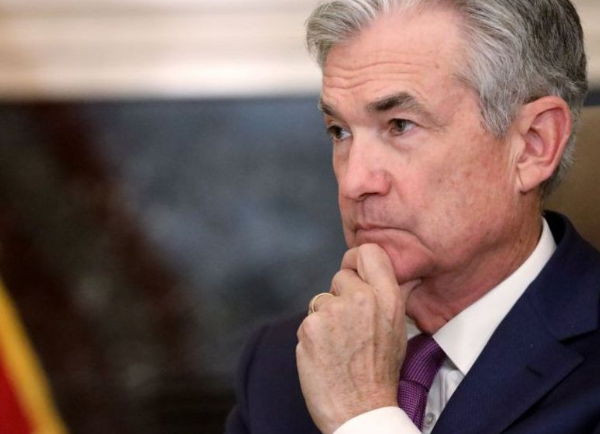The US has cut interest rates to almost zero and launched a $700bn stimulus programme in a bid to protect the economy from the effect of coronavirus.
It is part of a co-ordinated action announced on Sunday in the UK, Japan, eurozone, Canada, and Switzerland.
In a news conference Fed chairman Jerome Powell said the pandemic was having a “profound” impact on the economy.
US President Donald Trump said the emergency action “makes me very happy”.
The Fed has cut rates to a target range of 0% to 0.25%, and said it would it begin buying bonds – quantitative easing – a move that pumps money directly into the economy.
The central bank had already cut interest rates by half a percentage point after an emergency meeting on 3 March. That had been the first rate cut outside of a regularly scheduled policy meeting since the financial crisis in 2008.
Stock markets have plunged in recent days amid fears that economic paralysis will wipe out corporate profits and spark a global recession.
But early indications suggest the Fed’s move may not shore up financial markets. US stock market futures, which anticipate the direction of shares when trading begins, were almost 4% down
Speaking after the emergency meeting, which was held in place of the Fed’s regular rates setting decision scheduled for this week, Mr Powell warned that although it was clear the outbreak was already having a major impact on the economy it was still too early to tell just how far-reaching
the effects will be.
“The economic outlook is evolving on a daily basis and it is depending on the spread of the virus… that is not something that is knowable,” he said.
As part of Sunday’s announcement, the Fed will work with other central banks to increase the availability of dollars for commercial banks.
These so-called currency swap lines were an important tool in maintaining financial stability after the 2008 banking crisis.
“Today’s coordinated action by major central banks will improve global liquidity by lowering the price and extending the maximum term of US dollar lending operations,” Bank of England Governor Mark Carney said in a joint statement with Andrew Bailey, who succeeds him as BoE chief on
Monday.
The Bank of Japan also eased monetary policy by pledging to buy risky assets at double the current pace and announced a new loan programme to extend one-year, zero-rate loans to financial institutions.



